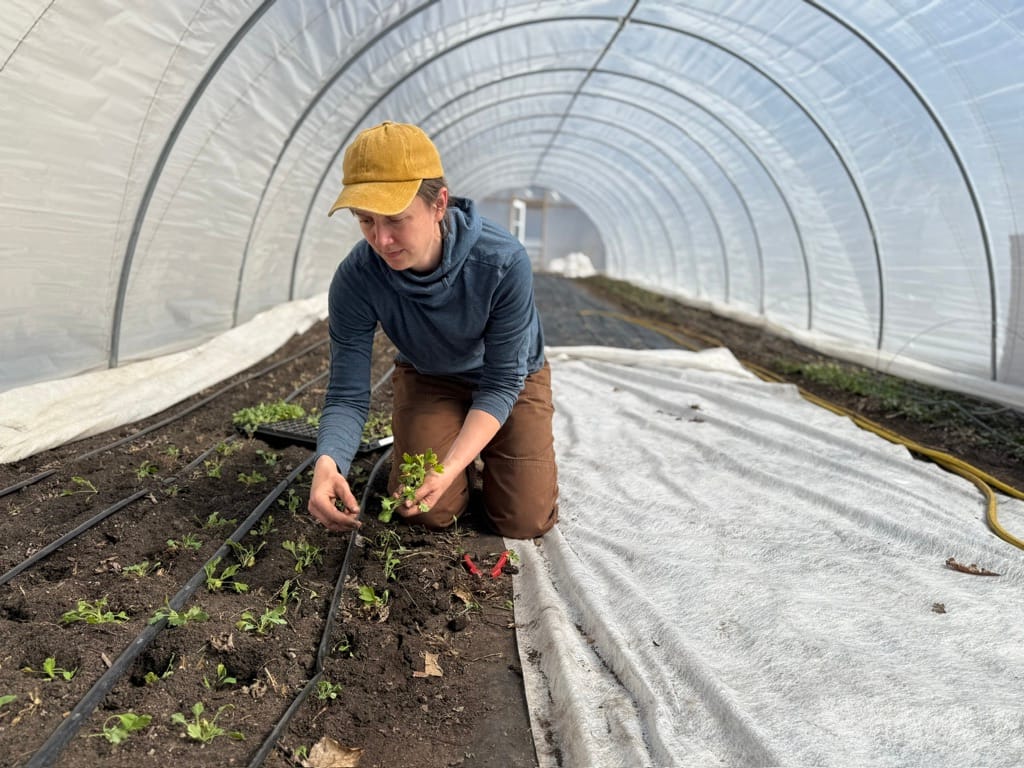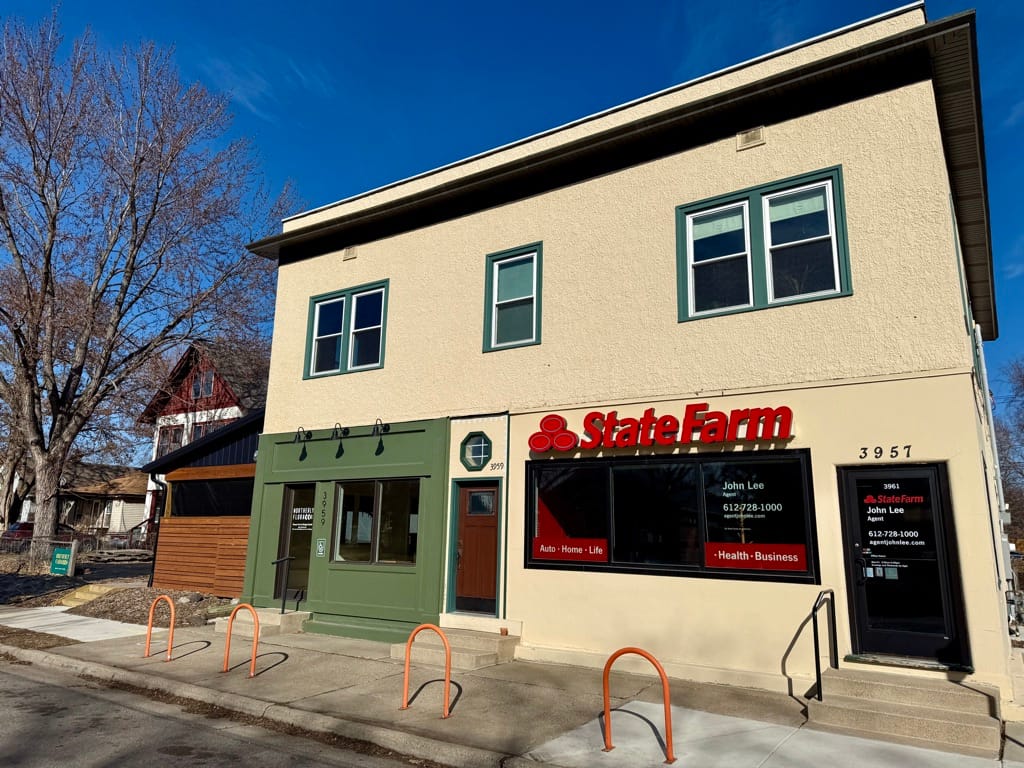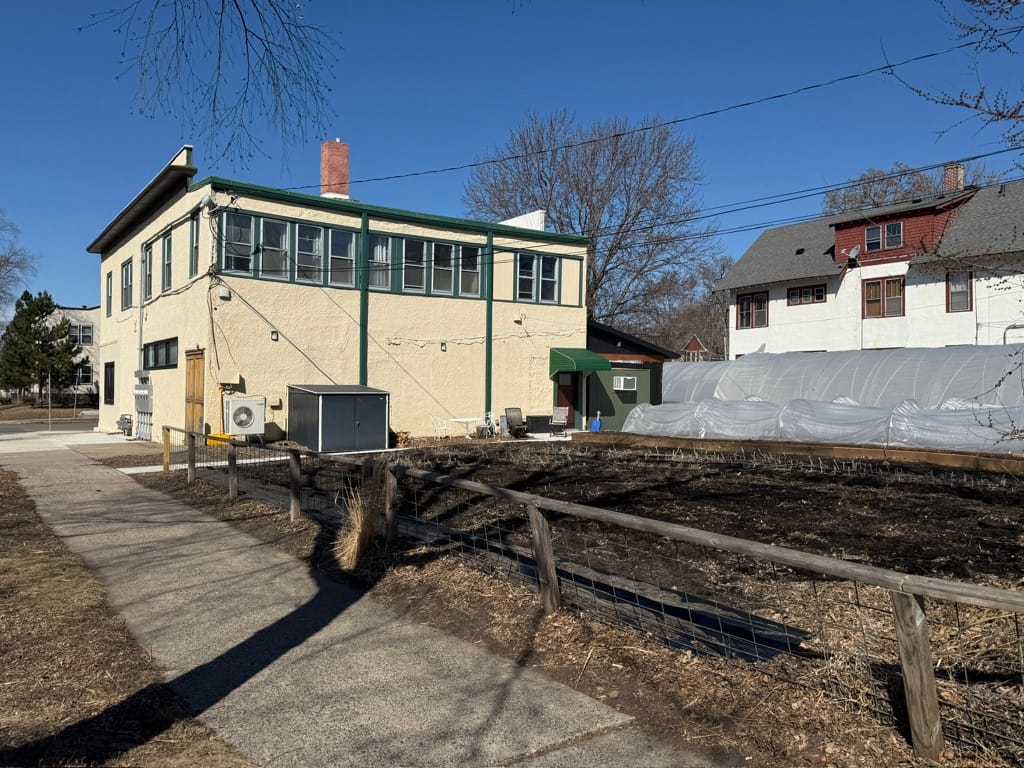🌷 Spring is almost sprung at Northerly Flora
As we speak, some of the 15,000 tulips planted behind Northerly Flora's 42nd Avenue studio are beginning to poke out of the soil.

As we speak, some of the 15,000 tulips planted behind Northerly Flora's 42nd Avenue studio are beginning to poke out of the soil. In the tarped-over tunnels, hardier annuals like snapdragons, foxgloves, and campanulas are already growing.
So begins the end of the business's winter break, the yearly lull that is both the challenge and the reward for growing commercial flowers in Minnesota. I caught up with owner Molly Gaeckle as she and her team of urban flower farmers get ready for their first spring harvests, fill the remaining spots for their summer-long flower subscription, and prepare for their annual dahlia tuber sale.

Background
Molly started growing flowers in the backyard of the quaint commercial building at 42nd Avenue and 40th Street in 2017. At the time it was owned by local restaurateur Kim Bartmann, who’d been using the site to grow produce for her Tiny Diner restaurant but had moved the operation elsewhere and was looking for another gardener to take over.

Having worked in that small-scale agricultural world, Molly'd recently gotten interested in flowers — which, more so than even food, were mostly imported from far-flung places in ways that took a heavy toll on the plants and their broader supply chain. Though the available plot was bigger than she needed at the time, its proximity just a block from her house made it hard to pass up. She figured she’d take a chance on a lease and see if she could find enough people interested in city-grown flowers.
What started as selling bouquets to a small handful of friends and family quickly caught on as a CSA-style subscription that provided weekly fresh flowers throughout the summer. Eventually that led to new business designing arrangements for weddings and selling directly to florists.
By the next year, the too-large plot was already too small, and she expanded to a second operation at a vacant half-lot owned by Redesign on 26th Street in Seward. Two years later, in dire need of more space and striking out on finding a larger lot within city limits, she began leasing another acre at a vineyard near Hudson, Wisconsin. Even with the expanded plots, though, it was still a homebound operation: The flowers were still started from seed in her basement, processed at her house, and sold out of her garage.
That changed in 2022 when she got a chance to buy the building at 3959 42nd Ave, known to longtime residents as the old Garden Homes Grocery and more recently anchored by a State Farm office with apartments above.

She and her team spent the next year renovating a one-bedroom apartment on the ground floor into a sunny studio that's now used for classes and office space — and someday, perhaps, retail. Outside, they built a large covered patio and installed a walk-in cooler. In the back, tunnels covered in plastic sheeting act as a quasi-greenhouse to extend the season. Eight rows of 50-foot-long beds maximize pretty much every square inch of land.

Growing flowers on an urban plot has its challenges. Without a tractor, for instance, typically simple tasks like turning over the soil become slow and laborious. Nor is there a barn, a greenhouse, or many of the other implements used by pretty much everyone else who's trying to grow plants on a large scale.
But it has its advantages, too. For one, Molly says flowers just grow better in the city, where they're sheltered from wind, storms, and pests. And compared to its far-flung rural peers, Northerly Flora's central location makes it an easy destination for florists, who show up to browse the shop's weekly wholesale market. It's also easier to attract staff, and for Molly, a mom of two, the one-block commute makes it possible to keep up with the chores that come with trying to be a farmer, wholesaler, studio operator, retailer, landlord, and business owner at the same time.
Because the flowers are usually harvested before fully blooming, the lot never quite becomes a dazzling botanical garden, but it still attracts routine onlookers who like tracking the changing scenery of the flowers throughout the seasons. This year the team of three full-timers and a handful of part-timers will grow tens of thousands of flowers in more than 150 varieties across the three properties.

Offerings
Subscriptions: The CSA-style fresh flower subscriptions remain the core of the business. Basically, $140 to $160 a month gets you a weekly bouquet of fresh flowers based on whatever is ready for harvest at the time, made available for pickup at a handful of places around town, including Dogwood Lake Street.
The season runs from May through October, and it's possible to subscribe only to certain months. They cap each month at 80 subscribers; there are still slots available.

Retail arrangements: Customers can also order individual arrangements at any time during the growing season, available for pickup at the studio or via delivery.
Events: The shop makes centerpieces and other arrangements for weddings and other events.
Classes: Throughout the summer the studio hosts classes that allow people to pick flowers from their stock and create custom arrangements. Around the holidays, they host a popular series of wreath-making classes. This summer's class schedule will be announced soon.
Wholesale: A growing part of the business supplies local florists with bulk orders. Each week the shop hosts a private market for these buyers — an option Molly hopes to someday expand to retail shoppers.
Dahlia tuber sale: Each spring the shop sells hundreds of dahlia "tubers" — the starchy root used to grow a dahlia flower — that they've harvested from their own plants. This year's event takes place May 3 from 10-2 and will feature pastries from the pop-up bakery Dahlia. Pre-orders are open now for pickup at the event, and more will be available at the sale.
Mother's Day pop-up: The shop will host a pop-up sale the day before Mother's Day, May 10, for last-minute flower shopping needs, with pastries from Laune Bread.


